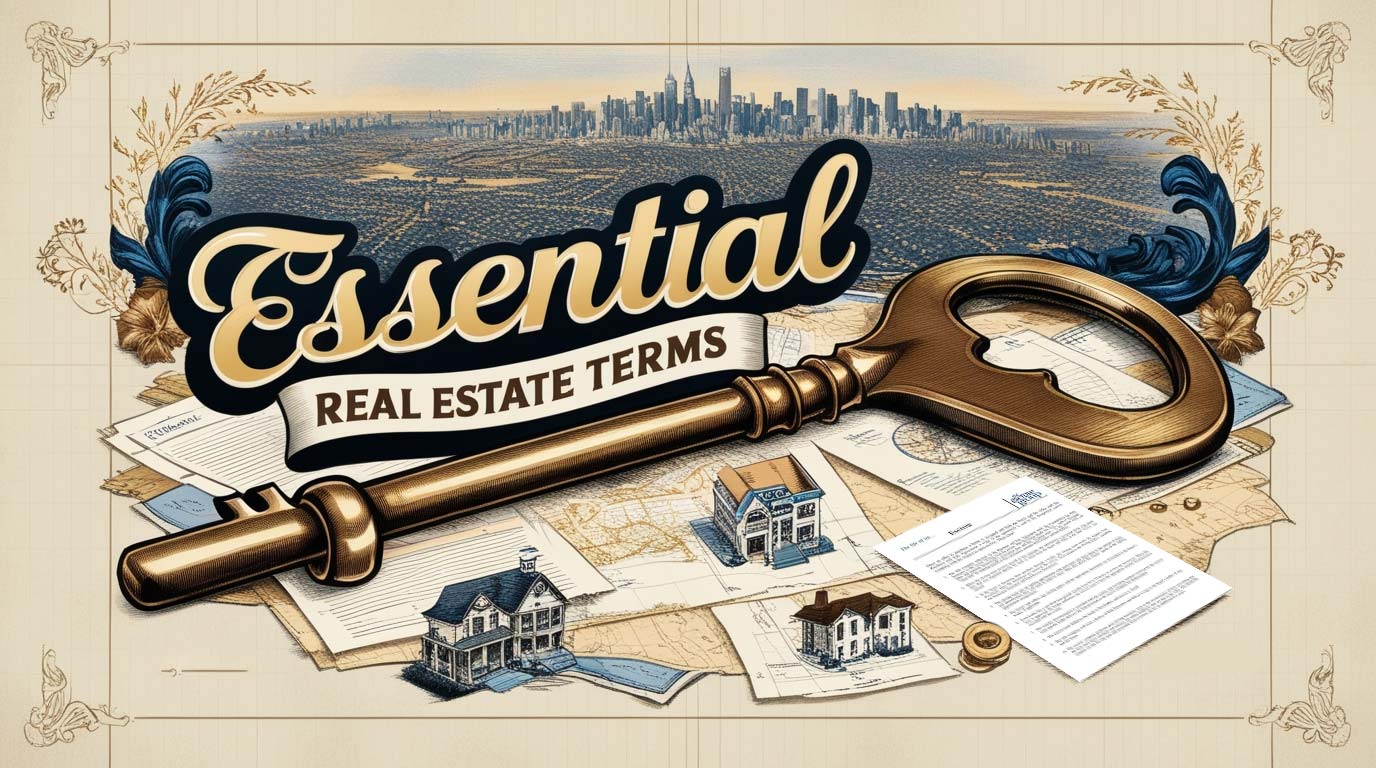
Real estate investing can be a lucrative venture, but it’s essential to have a firm grasp of the terminology used in the industry. Whether you’re a novice or a seasoned investor, knowing the key terms will help you make informed decisions and navigate deals with confidence. Here’s a comprehensive guide to the essential terms every American real estate investor should understand.
-
Appraisal
An appraisal is a professional estimate of a property’s market value, conducted by a licensed appraiser. This assessment is crucial for determining the fair price during a real estate transaction, especially if you’re applying for a mortgage. Lenders rely on appraisals to ensure that the property’s value justifies the loan amount.
-
Capitalization Rate (Cap Rate)
The cap rate is a formula used to assess the profitability of an investment property. It’s calculated by dividing the property’s net operating income (NOI) by its purchase price or current market value. A higher cap rate generally indicates a higher return on investment, but it can also signal higher risk.
Formula:
Cap Rate = (Net Operating Income / Current Market Value) x 100
-
Cash Flow
Cash flow refers to the net income generated by a property after all expenses (e.g., mortgage payments, taxes, maintenance) are deducted from the rental income. Positive cash flow means the property is earning more than its expenses, while negative cash flow indicates a shortfall.
Types of Cash Flow:
- Positive Cash Flow: Rental income exceeds expenses.
- Negative Cash Flow: Expenses surpass rental income.
-
Depreciation
Depreciation is the decrease in the value of a property over time due to wear and tear, aging, or obsolescence. The IRS allows real estate investors to claim depreciation as a tax deduction, which can reduce taxable income. For residential rental property, depreciation is typically spread over 27.5 years.
-
Equity
Equity is the difference between the market value of a property and the outstanding balance of any mortgages or liens. As you pay down your mortgage or as the property’s value appreciates, your equity in the property increases. Equity is a key component of wealth-building in real estate investing.
Formula:
Equity = Property Market Value – Mortgage Balance
-
Leverage
Leverage refers to the use of borrowed funds (such as a mortgage) to finance the purchase of a property. By using leverage, investors can increase their potential return on investment (ROI) without putting down the full purchase price. However, higher leverage also means higher risk, as the investor is responsible for repaying the loan, even if the property does not perform as expected.
-
Net Operating Income (NOI)
NOI is a key metric for evaluating the profitability of an income-generating property. It’s calculated by subtracting operating expenses from the gross income, excluding mortgage payments, taxes, and capital expenditures.
Formula:
NOI = Gross Income – Operating Expenses
-
Return on Investment (ROI)
ROI measures the profitability of an investment relative to the amount of money invested. In real estate, it’s calculated by dividing the net profit (or gain) from the property by the total investment cost. A higher ROI indicates a more profitable investment.
Formula:
ROI = (Net Profit / Total Investment) x 100
-
1031 Exchange
A 1031 exchange allows real estate investors to defer paying capital gains taxes when they sell a property, provided they reinvest the proceeds into a “like-kind” property. This IRS-sanctioned tax strategy can be a powerful tool for building wealth over time while minimizing tax liability.
-
Loan-to-Value Ratio (LTV)
LTV is a ratio that compares the amount of the loan to the appraised value of the property. Lenders use this ratio to determine the risk of a loan. A lower LTV ratio typically results in better loan terms for the borrower, while a higher LTV indicates more risk for the lender.
Formula:
LTV = (Loan Amount / Appraised Value) x 100
-
Amortization
Amortization refers to the process of gradually paying off a loan over time through regular payments. Each payment is split between interest and principal, with the majority of early payments going toward interest. Over time, a larger portion of the payment is applied to the principal balance.
-
Real Estate Investment Trust (REIT)
A REIT is a company that owns, operates, or finances income-generating real estate. By investing in a REIT, individuals can buy shares and earn a portion of the income generated by the properties owned by the trust. REITs provide an accessible way for investors to gain exposure to real estate without directly owning property.
-
CapEx (Capital Expenditures)
CapEx refers to the money spent on improving or upgrading a property to increase its value. This could include major repairs or renovations such as a new roof, HVAC system, or structural improvements. Unlike operating expenses, CapEx is typically considered a long-term investment.
-
Escrow
Escrow is a neutral third-party service that holds funds, documents, or property until the terms of an agreement are fulfilled. In real estate, escrow is commonly used during the closing process to ensure that both the buyer and seller meet their obligations before funds are exchanged.
-
Title Insurance
Title insurance protects the buyer and lender from any disputes or legal challenges over the ownership of a property. If someone later claims they have a right to the property (e.g., due to an unresolved lien or boundary dispute), title insurance covers the legal costs and any potential financial losses.
-
Market Appreciation
Market appreciation refers to the increase in the value of a property over time due to factors such as economic growth, demand, and inflation. Real estate investors benefit from appreciation when the property’s value rises, allowing them to sell at a profit.
-
Zoning
Zoning laws regulate how land and properties can be used within specific areas of a city or municipality. For investors, understanding zoning is critical, as it can affect what type of development is allowed on a property, whether it’s residential, commercial, or mixed-use.
Real estate investing can be highly rewarding, but success depends on your knowledge of key industry terms and concepts. By understanding these terms, you can better evaluate opportunities, make informed decisions, and maximize your return on investment. Whether you’re buying rental properties, flipping houses, or exploring REITs, mastering the language of real estate will give you a significant edge in this competitive market.
Memphis Buy And Hold is specializing in locating, purchasing, renovating and managing single-family and multi-unit properties and possesses from 2007 up to the present of experience in real estate investing and property management in the Memphis and Nashville markets.
- Memphis Property Management
- Memphis Turnkey Investment Properties
- DCC Rentals LLC
Discover more from Memphis Buy And Hold
Subscribe to get the latest posts sent to your email.

